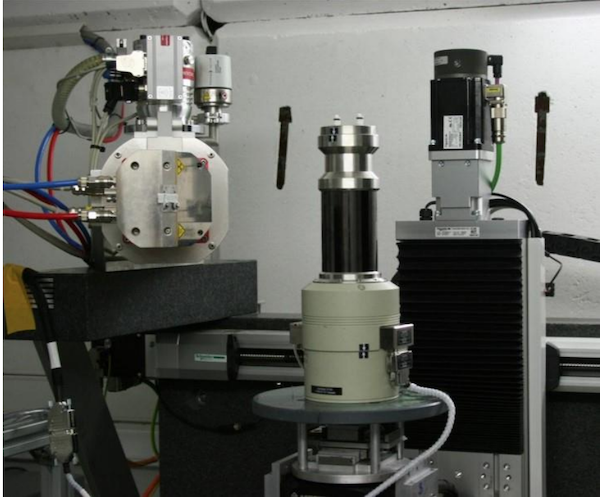University of Ghent uses Deben CT5000 to Investigate the Uniaxial Compressive Strength of Depositional Limestone
Deben, a leading provider of in-situ testing stages together with innovative accessories and components for microscopy, reports on how University of Ghent have used the Deben CT5000 to study the Uniaxial Compressive Strength of four different depositional limestones.
Sourced from the Paris Basin these limestones are often used as building material in France and Belgium. The University’s work was performed using HECTOR µCT partnered with the Deben tensile, compression stage.
The Uniaxial Compressive Strength (UCS) of a rock material is the measure used by geo-engineers to determine the mechanical strength of a rock. The material that is tested is usually required to be of certain dimensions and shapes as standard. However the University of Ghent wanted to explore the possibilities of testing materials outside of the usual standard, therefore they carried out their UCS testing on rock plugs smaller than the norm. Taken from the Paris Basin, four different depositional limestones were tested and the data gathered was compared to results from standard UCS testing. The University’s results show that the strength of the smaller plugs is very similar to that of the standard sized plugs.
Six cores of each type of limestone were taken from the quarries which are commonly used to supply limestone as building material to France and Belgium. All of the samples were obtained perpendicular to the bedding of the rock samples. The samples were then finished on a surface grinder to ensure that the samples possessed flat, parallel end surfaces. The samples then underwent vacuum-assisted water absorption tests to determine their porosity. Finally they were then dried until there was a constant mass, the UCS compression was then carried out on an MFL 6000-kN closed-loop compressive testing machine. The same process was carried out on 10 small-scale plugs of each type of limestone this time the Deben CT5000-TEC was used to carry out the UCS testing on a smaller scale. The CT5000-TEC was adjusted to fit specifically to the micro-CT systems at Ghent University’s, Centre for X-ray Tomography. During the experiments the system allowed the smaller rock plugs to under-go uniaxial compression, up to the maximum force of 5000N and the Deben Microtest software was used to control the system. Figure 1 shows the CT5000-TEC system mounted to the sample stage of HECTOR, one of the systems used at University of Ghent’s Centre for X-ray Tomography.
The Deben CT5000-TEC stage allowed control of the displacement rate during the testing of the small scale limestone plugs and this has produced reliable UCS measurements which are comparable to those obtain during standard tests. The system allowed for high resolution X-ray CT images to be obtained which allowed the University to study the fracture patterns and mode of failure. The full results are reported in: Bulletin of Engineering Geology and the Environment.

